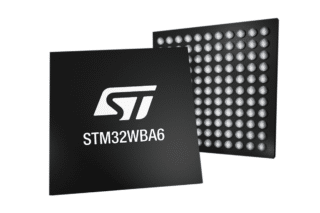Bitcoin’s popularity displays few signs of abating. The crypto currency’s value peaked above $5,000 for the first time in September. But the digital currency’s underlying and rapidly evolving technology known as blockchain, is also drawing attention. The tech community is discovering many potential industrial applications.
A blockchain is based on a decentralized database which distributes information entered into it across thousands of computers. It creates a digital public ledger of transparent and incorruptible transactions, of which copies are held on each device on the network. Tampering with blockchain’s ledger is nearly impossible because changing an entry also requires altering all subsequent entries, necessitating an extraordinary amount of computing power. Data and data exchange is encrypted, making them relatively secure. This makes users less dependent on the computing centers of major platforms. These qualities, especially the promise of an unmodifiable ledger, led Grand View Research to predict that the global blockchain market will reach $7.74 billion by 2024.
“Blockchain and its related technologies are strategically very important,” stated Volkmar Denner, CEO of German manufacturer Bosch.
Bosch has joined forces with computer networking giant Cisco Systems, hardware manufacturer Foxconn, and other companies under the banner of the Trusted IoT Alliance to explore how blockchain can secure and improve Internet of Things (IoT) applications.
Can Blockchain Do It All?

Anoop Nannra, Cisco head of blockchain initiatives and Alliance chairman, said blockchain can facilitate complex manufacturing processes which rely on components and technologies from extended supply chains. It can also help control the provenance of components by using cryptographic signatures to confirm the identity of objects at every stage of the transport and after-sales process. According to Nannra, other benefits include better quality,efficiency, and lower costs.
One of the things we are looking at is providing an infrastructure for integrity where we have multiple stakeholders in a manufacturing process. Many organizations leverage a lot of third-party manufacturing. It can be very complex, and the supply chain can be ten layers deep. Even if you are very efficient, there are still black holes.
However, blockchain promises integrity throughout the supply chain. For example, it can ensure that components have been manufactured without the use of conflict minerals, Nannra explained.
It could offer a level of visibility that has not existed before. It’s a way of managing supply chain risk and ensuring against theft, and use of gray market or counterfeit components.
Blockchain also may improve design authentification. In collaborative projects, blockchain could help ensure that all parties are working from the correct version of the design and that no one has changed it, unintentionally or otherwise. This could improve the outsourcing of manufacturing, as well as offsite 3D printing of replacement parts, Nannra believes.
Smoothing Supply Chain Logistics
Day-to-day supply chain logistics could also be made more efficient by applications exploiting blockchain technology, according to Steve Wilson, vice president at Capgemini Consulting. Current component-tracking applications extract data from software run by supply chain actors and those supporting them. Because blockchain is distributed across a network, it is not reliant on any one player or application, and can be accessed by anyone with authorization.
Understanding where a consignment is is not that easily done. At the moment, the data is in different ERP and supply chain systems. With blockchain, access to records is easier because it’s in one place.
Shipping firm Maersk is already working with IBM to build a blockchain application to help manage and track tens of millions of shipping containers across the world. The solution could allow the shipping and logistics industry to save billions of dollars.
In addition, blockchain could automate commercial transactions. When products are received, IoT technologies can confirm physical presence and start the payment process, shared Graham Taylor, technical lead at Capgemini’s Applied Innovation Exchange.
You can make contracts programmable, responding to physical conditions tracked by IoT devices. Based on those conditions, you can automate points in the process which are today done manually or offline.
As digitization and technical advances within industry accelerate, businesses need to collaborate to keep up with the pace of change and serve customer needs. Blockchain promises to sustain trust and improve efficiency in these collaborative efforts. The next few years will prove if the promise is fulfilled.
Hicham Dhouibi contributed to this report.













